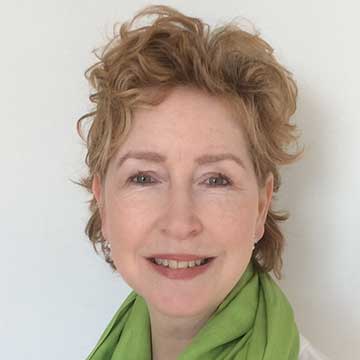Selena is a COSRT-accredited relationship and psychosexual therapist and supervisor. She has many years' experience working with adult couples and individuals. Her medical background is in sexual and reproductive health.
I can help with...
- Affairs and betrayals
- Bereavement and loss
- Childbirth
- Gender issues
- Infertility
- Pregnancy, birth and loss
- Relationship difficulties
- Separation and divorce
- Sex addiction
- Sexual abuse
- Sexual problems
- Sexuality
Types of clients I see
- Individuals
- Couples
- Supervisees
Languages I speak
- English
Location(s)
- Contact me for details
Types of therapy I offer
- Integrative
- Online counselling
- Psychosexual
- Relational
- Supervision
- Training
- Transpersonal
My approach
I am an integrative relationship/psychosexual therapist. This means I specialise in relationship, sex and intimacy problems.
I offer short and long-term therapy, consultancy, supervision and training.
I see a very varied client group. I see adults from aged 16 upwards of varied sexual orientations, cultures, religious beliefs, ethnicities and social backgrounds, and I am kink friendly. I also work with people on the autistic spectrum, those with learning difficulties, mental health concerns, chronic illness and physical disabilities .
Most people have anxieties about intimacy and sexual difficulties at some point in their lives. Psychosexual and relationship therapy offers the opportunity to discuss your concerns with a therapist specially trained in this area of work in a safe, supportive and confidential environment.
If you are currently in a relationship you will be encouraged to attend sessions with your partner. This is because sexual and relationship difficulties rarely ‘belong’ to one partner(s) or the other. If you don’t have a current partner(s) or he/she is unwilling or unable to attend, you can still benefit from attending alone.
The problems I address are often as a result of:
- relationship issues
- difficulties with sexual function
- sexual function and disabilities
- cultural and religious differences
- sexual problems related to chronic illness
- surgery
- lack of education about anatomy and physiology
- fear and anxiety about lack of experience or unrealistic expectations
- past history of trauma
- infertility/miscarriage and infant loss
- concerns about gender
- sexuality
People may be worried about their personal sexual practises, likes and dislikes or those of their partners. Problems can also be related to sexual compulsivity, bereavement and menopause. They can be related to pain during sex or erectile dysfunction, or delayed or premature ejaculation.
Don’t hesitate to seek help, no matter what your concern may be. If it is not in my scope of practice I will think with you about an appropriate source of help and support.
About integrative therapy
I describe my approach to therapy as integrative. This approach allows for multiple viewpoints and interpretations and it could be argued is the most ethical and neutral approach.
It obliges me to continue learning from colleagues, further study, supervision and my own personal therapy. With this approach I have to keep up the process of integration and self-awareness.
Integration questions certainty of any one ‘truth’ and allows people to consider what might be the more useful or helpful interpretation. I will ask clients: “Is there another way of looking at this behaviour, situation or feeling?”
It also takes into account the individual needs of the client.
The most important thing agreed by therapists across all modalities is the relationship between client and therapist. The client needs to feel safe, trusted, listened to and heard. They also, of course, need to trust the therapist especially when disclosing concerns about their most intimate problems relating to sex and intimacy.
Couple therapy
In couple therapy I regard the couple as the client and the relationship as co-created.
We look at improving communication and helping partners to recognise each other’s triggers and gain an insight and an understanding of their partner’s world. This insight can engender empathy and acceptance, which in turn promotes healing.
Encouraging partners to practise fully attentive listening is one of the most powerful tools in couple work.
Couple therapy can also be about negotiating the ending of the relationship so that both partners have an appreciation of what has been positive, what they can take with them into the future and what they will be relieved to leave behind.
Training, qualifications and experience
- 2019: Couple Therapy for Depression – Tavistock Institute, London
- 2019: Foundation Training – Foundation for Infant Loss
- 2016: Diploma Transpersonal Couples Counselling and Psychotherapy – Centre for Counselling and Psychotherapy Education, London
- 2015: The Fast Trauma and Phobia Cure – Human Givens College
- 2015: Professional Certificate for the Use of Mindfulness in Therapy – Mindfulness Institute, London
- 2015: Diploma in Clinical Supervision and Consultancy – NAOS Institute, London
- 2010: PG Dip in Relationship Therapy (Psychosexual Therapy) – Relate Institute (accred. The University of Hull)
- 2006: Advanced Diploma in Women’s Health – Middlesex University, London
- 1997: Associate Degree in Nursing – Beth Israel School of Nursing, New York City
I worked for many years as clinical nurse specialist in sexual and reproductive health and as psychosexual therapist in the NHS.
Professional affiliations
- COSRT-accredited relationship/psychosexual therapist and supervisor
- Registered member of BACP
- Consultant and module tutor for Professional Certificate in Psychosexual Therapy for Relate Institute
Code of ethics
I abide by the COSRT code of ethics.
Fees and availability
- Initial 10-minute introductory phone consultation, free of charge
- Face to face (phone or Skype by special arrangement only)
- Sessions are 50 minutes
- Individual sessions: £85
- Couple sessions: £100
- Extended couple sessions (75 minutes): £130

